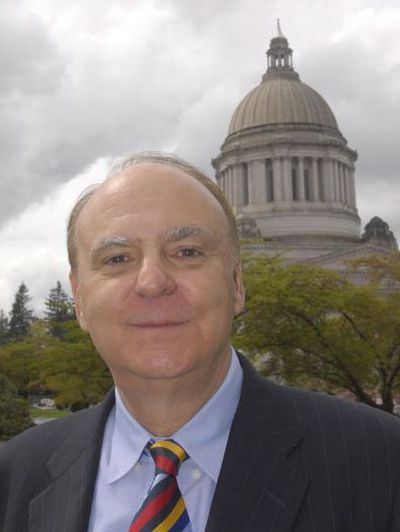Law casts new light on Electoral College

How would you feel if you and 99 percent of Washington voted for Barack Obama last year, but the state’s Electoral College votes went for John McCain?
OK, you Republicans out there, stop rubbing your hands gleefully. What would you say if the state’s voters went 99 percent for McCain, but its electoral votes went for Obama?
Those are far-fetched, but conceivable, scenarios for a future election under a law Gov. Chris Gregoire signed last week.
If enough other states pass similar laws, Washington’s Electoral College votes will be awarded to the presidential ticket that gets the most votes nationwide, regardless of the vote in Washington. (Until states with a total of 270 electoral votes pass such laws, we operate under the same system we’ve always had: All the state’s Electoral College votes go to the candidate who wins Washington.)
Progressive groups say the change is a great thing, because it means the leader of the nation may someday be elected by the majority of the nation’s voters, not through a system that concentrates most of the campaigning on a few states where the races are close.
Right now, presidential candidates spend the vast majority of their time after their national conventions in just a handful of “battleground” states where the Electoral College votes are up for grabs, said John Koza of California-based National Popular Vote, the organization behind this change. Because the races weren’t close in 2008, Washington, Idaho, Oregon and Montana got no visits after the conventions. Because Washington is reliably Democratic, Republican presidential campaigns regularly pull up stakes a month before the election.
“Your votes don’t matter,” Koza contends. “A Republican (presidential) vote in Washington is utterly worthless.”
But David Anderson, a Shaw Island resident who helped give Washington its top-two primary system, thinks it’s such a bad idea he filed for a referendum to repeal it. If he can get 121,000 valid signatures by July 25, voters will decide whether to keep the plan.
Anderson said he’s passionate about having competitive elections, with presidential candidates paying attention to regional issues such as Hanford cleanup and the protection of Puget Sound, but this ain’t the way to get there. If the majority of the national vote is what matters, candidates will spend time in the most populous and fastest-growing states; Washington is neither, he said.
“It’s designed to create a train wreck around the Electoral College,” he said of the law. “It’s like having both our state’s senators always voting with the majority of the Senate.”
Progressive States Now contends the law could lead to better voter turnout. It would shift the emphasis from a few battleground states to states like Washington, which it calls a “spectator state.”
Christian Smith-Socaris, the group’s election reform policy specialist, said if the popular vote for president is close nationally, turnout could go up even in states where the race isn’t close.
The flip side could be that when a national election isn’t close – something on the level of Ronald Reagan’s blowout of Walter Mondale in 1984 – there’d be lower turnout. Even if the race is thought to be close in Washington, some people inclined to vote for the state’s winner could stay home if it seemed the candidate was going to lose big, nationally.
What’s really behind this change is the ongoing dissatisfaction with the Electoral College. It surfaces every four years, when the presidential election gets Americans thinking about the system the Founding Fathers devised because, let’s face it, they didn’t really trust the masses to pick the country’s leader.
One way to change that is with a constitutional amendment. Proposals for that also surface about every four years, but get nowhere. Koza says the new Washington law is a way to change things state by state, without an amendment. It could lead to a constitutional amendment, much the way some states allowing women to vote led to the 19th Amendment, he believes.
That’s possible, but it seems as though the proponents are really using secondary arguments – it’ll boost turnout, it’ll get us more attention from the presidential campaigns – when what they really want is a national plebiscite.
The public seems to agree with the idea of a national winner-take-all system. Last December, Koza’s group asked 800 folks in Washington whether the president should be the candidate who gets the most votes in all 50 states, or the one chosen by the current Electoral College system, and 77 percent went with the first option.
But using that to support the new law seems misleading. What would folks have said if asked whether they’d support a system that awarded Washington’s electoral votes to the person with the most votes nationally, even if that candidate had a minority of votes in Washington? And would the support have gone down if respondents were told that some other states could still give their electoral votes to the candidate with the majority of votes in their state?
Because that’s what this new law does.